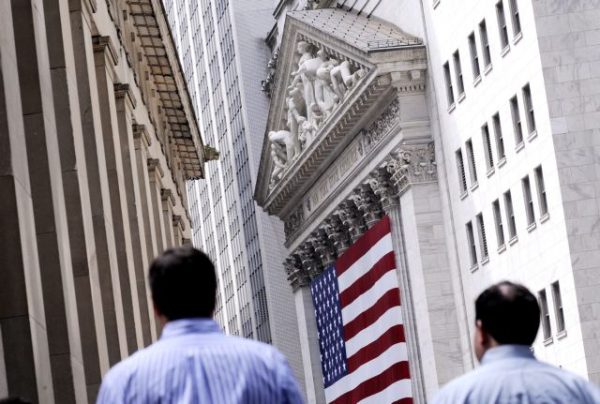
Foreign ratings agencies offer reassuring reports concerning Greek banks, regarding the risks they face in the current period of turmoil in the international markets, after the bank bankruptcies in the USA and the contagion of the crisis in Europe, are continuous.
All the analyses that have seen the light of day in the last few days highlight the significant progress they have achieved on all fronts: in their asset quality, capital adequacy, liquidity and profitability/efficiency.
According to banking sources, after the latest developments, the ability of a credit institution to respond to a potential increase in withdrawals from its depositors is a key parameter for evaluating its stability.
In this context, they say, domestic systemic groups are one step ahead of European banks, as they have better defenses in case they have to deal with emergency situations.
The crucial indicators
In a recent financial bulletin, Eurobank highlights that the quality of regulatory capital may reflect the resilience of a bank’s first line of defense, however in today’s environment liquidity is becoming more important.
Two of the most widely used indicators to measure it are the Liquidity Coverage Ratio (LCR) and the Loan-to-Deposit Ratio (LRC).
Today, the Greek system shows particularly good performances in these areas, not only in relation to the past but also in comparison to the credit institutions of the other eurozone countries.
According to Eurobank economists, an important role in this has been played by the remarkable increase in deposits since the beginning of the pandemic, which exceeded 46 billion euros between March 2022 and December 2022.
They also note that the planned granting of new loans in the last two years, based on supervisory criteria, is working in the same direction.
In particular, the DKP is configured in:
161% for Alpha Bank
173% for Eurobank
259% for the National Bank
201% for Piraeus Bank
These levels show, according to the same analysis, that Greek banks are able to withstand significant deposit outflows even for a period of almost two months on average.
In addition, they show a particularly low loan-to-deposit ratio:
77% for Alpha Bank
59% for the National Bank
73% for Eurobank
62% for Piraeus Bank
Keeping it at levels significantly below 100% provides Greek banks with an additional safety net and leaves them a comfortable margin of immediate response to unexpected disturbances that could negatively affect their liabilities, Eurobank points out in its report.
Moody’s augury
The above figures make analysts who monitor the domestic banking industry optimistic that their figures will continue to improve in the coming years.
Indicative of these assessments is yesterday’s report by Moody’s credit rating agency, in which it maintains a positive outlook for Greek banks.
Its analysts argue that the expected favorable economic conditions in the two years 2023-2024 will give impetus to credit expansion.
As they report, the four systemic groups “have significantly reduced Non-Performing Exposures in recent years and their asset quality is expected to stabilize despite the difficulties of vulnerable clients in today’s high interest rate environment”.
In addition, they note that capital levels will remain intact and show little growth as banks build ratios through their profitability.
Latest News

German Ambassador to Greece Talks Ukraine, Rise of Far Right & Tariffs at Delphi Economic Forum X
Commenting on the political developments in his country, the German Ambassador stressed that it was clear the rapid formation of a new government was imperative, as the expectations across Europe showed.

Athens to Return Confiscated License Plates Ahead of Easter Holiday
Cases involving court orders will also be excluded from this measure.

Servicers: How More Properties Could Enter the Greek Market
Buying or renting a home is out of reach for many in Greece. Servicers propose faster processes and incentives to boost property supply and ease the housing crisis.

Greek Easter 2025: Price Hikes on Lamb, Eggs & Sweets
According to the Greek Consumers’ Institute, hosting an Easter dinner for eight now costs approximately €361.95 — an increase of €11 compared to 2024.

FM Gerapetritis Calls for Unified EU Response to Global Crises at EU Council
"Europe is navigating through unprecedented crises — wars, humanitarian disasters, climate emergencies," he stated.

Holy Week Store Hours in Greece
Retail stores across Greece are now operating on extended holiday hours for Holy Week, following their Sunday opening on April 13. The move aims to accommodate consumers ahead of Easter, but merchants remain cautious amid sluggish market activity.

Green Getaway Ideas for Easter 2025 in Greece
Celebrate Easter 2025 in Greece the sustainable way with eco-farms, car-free islands, and family-friendly getaways rooted in nature and tradition.

Civil Protection Minister Details Summer Firefighting Plans at Delphi Forum
At the 10th Delphi Economic Forum, Minister of Climate Crisis and Civil Protection Yiannis Kefalogiannis discussed Greece's plans for the upcoming fire season.

How Shops and Markets Will Operate During Easter Holy Week
The Easter holiday schedule has been in effect since April 10, with retail stores open Palm Sunday, and most supermarkets also operating to meet consumer demand for Easter shopping

Why Is the French Aircraft Carrier Charles De Gaulle in Piraeus?
Docking in Piraeus after a four-month deployment in the Indo-Pacific region, the admiral of the aircraft carrier the Charles de Gaulle says, "Greece is our best partner in the Mediterranean."








































 Αριθμός Πιστοποίησης
Αριθμός Πιστοποίησης